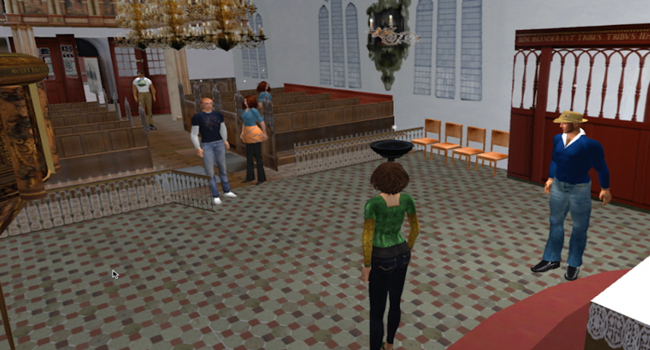This research is theory- and data-driven. The theories used include brain, cognition, language, and learning theories; the theoretical perspective is sociocultural and is inspired by Luria, Vygotsky and later researchers with roots in the cultural historical school. The present research is a case study involving data collected through two pilot courses in an immersive virtual environment: Second Life. The first course is a pedagogical course for speech therapists, and the other is a rehabilitation course for persons suffering from aphasia. The courses were conducted by speech therapists at The Institute for Speech, Language, and Brain Disorders in Aalborg, DK, from 2011 to 2012. The data comprise interviews, video recordings and workshops. In addition, Ulla Konnerup´s experiences as a speech therapist, as well as her research stay at H-star, Stanford, in the autumn of 2012, are included.
The research has demonstrated that avatar-mediated interaction in immersive virtual environments contributes to a strengthened renegotiation of identity through shared experiences, a joint repertoire, joint culture and heritage, narratives, and communication using multimodal tools. Through embodied interactions, persons with aphasia have been shown to be capable of immersing themselves in the interactions and scenarios of Second Life to great extent, leading them to experience a high degree of presence. Social and cultural activities and specific training practices, such as naming, categorization, selection, orientation and spatial activities have been shown to be suitable for avatar-mediated training. Furthermore, research has shown that persons with Anomic and Wernicke’s aphasia tend to benefit the most from the recommended approach.
However, due to technical obstacles and the speech therapists’ lack of didactic competencies in information and communication technology (ICT), among other issues, the interactions in Second Life have also been marked by frustration. Despite these difficulties, there are good indications that the illustrated method has significant benefits; moreover, recommendations for the development of future avatar- mediated rehabilitations for persons with aphasia are given.
The approach of this study is qualitative and phenomenological, with the intention of giving a voice to persons with aphasia.







